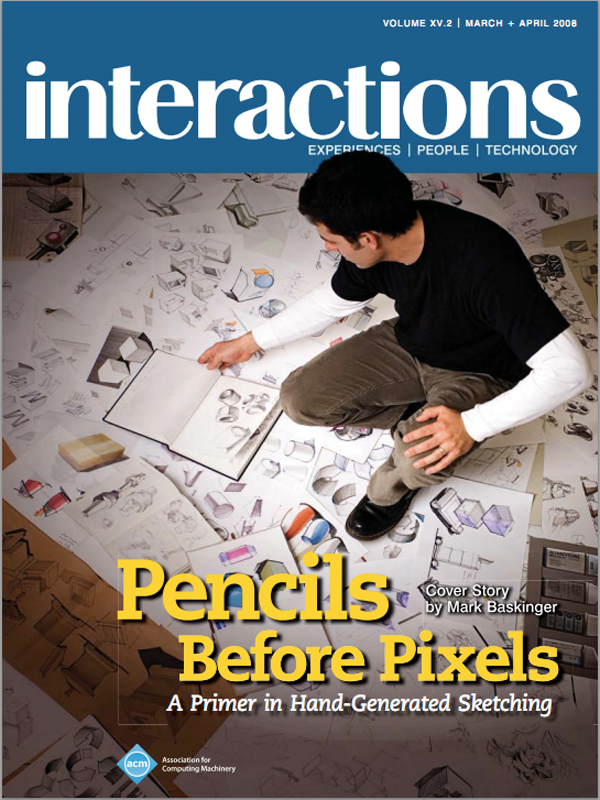Authors:
Richard Anderson, Jon Kolko
Jon: A core theme of this issue of interactions has been the relationship between interaction design and education: how to teach it, how to learn it, and how to live it. As a designer, I'm obviously biased toward design education, as I see design as a core tenet of life, akin to reading and writing. Design has often been characterized as "dreaming" or "problem solving," both of which I consider underpinnings of human life. At the same time, I see the value in logic and pragmatism, and I'm often challenged professionally to "prove it" or "back it up with…
You must be a member of SIGCHI, a subscriber to ACM's Digital Library, or an interactions subscriber to read the full text of this article.
GET ACCESS
Join ACM SIGCHIIn addition to all of the professional benefits of being a SIGCHI member, members get full access to interactions online content and receive the print version of the magazine bimonthly.
Subscribe to the ACM Digital Library
Get access to all interactions content online and the entire archive of ACM publications dating back to 1954. (Please check with your institution to see if it already has a subscription.)
Subscribe to interactions
Get full access to interactions online content and receive the print version of the magazine bimonthly.







Post Comment
No Comments Found